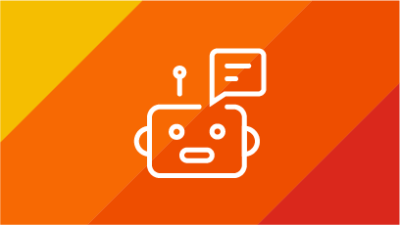Generative AI in Teaching
Breadcrumb
- RIT/
- Center for Teaching and Learning/
- Teaching/
- Generative AI in Teaching
Generative AI has been a commonly discussed topic in academic and business conversations. CTL has a variety of resources and opportunities for faculty to share their experiences and practices with using generative AI in teaching.
Getting Started
What is Generative AI?
A high-level overview of this category of tools.
Setting Expectations With Students
Conversation ideas for talking with students and suggestions for writing your syllabus.
Equity, Privacy and Other Concerns
A high-level overview of some concerns regarding generative AI tools.
Course Activities Designed for Authentic Student Work
Course design and teaching strategies to help facilitate students generating their own work without AI.
Student Activities Using Generative AI
Ideas for activities that use generative AI and how to frame these types of activities.
Using AI to Generate Instructional Materials
Ideas for using generative AI to help you design and facilitate your course.
Teaching Practices
Generative AI and Writing-Intensive Course
Theoretical frameworks and considerations curated on relevant contexts of writing-intensive courses.
Events
RIT has a variety of opportunities for faculty to continue discussions and sharing of information on strategies for incorporating generative AI uses into your teaching.
Facilitated by Lisa Hermsen, Department of English, CLA
Dennis Baronhow, in A Better Pencil: Readers, Writers, and the Digital Revolution (2009), poses questions about "how we learn to trust a new technology and the new and strange sorts of texts that it produces; how we expand the notion of who can write and who can’t; and how we free our readers and writers while at the same time trying to regulate their activities." The inquiry is as important now, if not more so, as it was over 10 years ago.
This circle will briefly review the history of OpenAI and follow theories for the future of Generative AI. Avoiding utopian/dystopian views, we will consider other possibilities. Generative AI will continue to be pervasive, almost ubiquitous; it will limp along with diminishing returns; it will collapse under the weight of the infrastructure supporting it. The purpose of the circle is to move from these discussions to think deliberately about how Generative AI is working and will continue to work in our classrooms. Is it possible to disallow or detect? Would version history be useful? How can we engage students with the new complexities of copyright? Might we teach expert prompting? How will students respond to questionable-use ethics? What will this technology do for human expression?
Participants may take a position, try out an assignment, or experiment with their own writing, and can opt in or out of using OpenAI on their computers (though we will check out Bing and other silent authoring technologies). We will be meeting in Zoom, 12:00-1:00 pm, on the following Mondays: January 29, February 12 and 26, March 18, and April TBD. If you would like to join this circle, email Lisa Hermsen.
The Summer Institute on Teaching & Learning will hold a multi-day event which focuses on RIT's response to AI in higher education, and be co-sponsored between the offices of The Center for Teaching and Learning and the Vice President for Research.
Past Events
Leading RIT faculty offered short practical demonstrations on how AI tools have been used to enhance their teaching practices. This showcase was a great opportunity for RIT faculty to sharpen their skills or learn something new through hands-on demos and live Q&A.
Presenters are listed below, along with an introduction video on their demonstration topic.
- AI Tools: Low Hanging Fruit Shaun Foster, CAD
- Text-based AI tools for Research and Writing Processes Phil Shaw, SOIS
- ChatGPT in Higher Ed: Boosting Teaching Efficiency Garret Arcoraci, GCCIS
- A Formula For Ethical AI Concepting Application Ihab Mardini,CAD
- Fast formative feedback for your students using Gen AI Clark Hochgraf, CET
This session is intended for RIT faculty, including adjuncts and teaching assistants. Interpreters will be provided.
View the recording of the event.
This was an open discussion on the influence of generative AI on teaching methods, to determine what support faculty need, as well as topics for future programming.
This session is intended for RIT faculty, including adjuncts and teaching assistants. Participants should request access services if needed.
Join us for an open discussion on the influence of generative AI on teaching methods to determine what support faculty need, as well as topics for future programming.
This session is intended for RIT faculty, including adjuncts and teaching assistants. Participants should request access services if needed.
In this workshop, participants will experience how artificial intelligence tools can help students, writers, and researchers extend their cognition (Clark & Chalmers, 1998). Through on-screen demonstrations and a series of scaffolded group activities using ChatGPT, teams will partially complete 3 stages of an inquiry-based research process common to assignments in Writing Intensive (WI) courses:
- developing research questions,
- analyzing sources, and
- acknowledging sources of information.
There will be opportunities for evaluating the benefits and challenges of using AI in research writing, as well as a concluding discussion about the personal, professional, and institutional ethics of AI-assisted writing and research as a scholarly method. Participants should bring their laptops in order to fully participate in the activities. Click here to register for this workshop.
Led by Phil Shaw, Senior Lecturer in the University Writing Program, Academic Affairs & Faculty Fellow for Gateway Course Student Success, Center for Teaching and Learning.
They symposium explored a range of opportunities and challenges that generative artificial intelligence presents in higher education. Jeffrey Allan, Director of Nazareth University’s Institute for Responsible Technology delivered a keynote address on How Generative AI Will Transform Teaching, Learning, and Research. Afterwards, attendees participated in collaborative exercises with colleagues discussion the following:
- Benefits to Educators
- Benefits to Students
- Challenges & Responsible Use
The results of this work are currently being evaluated and key findings will be released to the RIT Community in the near future.
Join the Center for Teaching and Learning (CTL) for a faculty panel on the impact of generative artificial intelligence on teaching and learning in higher education. Faculty members from various disciplines will address a range of topics including preparing students for generative AI in the workplace, incorporating generative AI into courses, and the use of generative AI to help accelerate and improve the teaching process.
Panelists:
- Neil Hair (moderator), Center for Teaching and Learning, and Saunders College of Business
- Liz Lawley, Golisano College of Computing and Information Sciences
- Juan Noguera, College of Arts and Design
- Esa Rantanen, College of Liberal Arts
- Jennifer Schneider, Eugene Fram Chair, and College of Engineering Technology
- Phil Shaw, University Writing Program
View Event Recording
(requires RIT Authentication
Hosted by Amanda Bao, Civil Engineering Technology and Environmental Management and Safety, CET; and co-hosted by Garret Arcoraci, School of Information, GCIS
Generative AI has been rapidly spread into higher education. While the power of generative AI initially caused some panic about academic integrity, the positive impact of generative AI on STEM fields has received more and more attention. For example, generative AI has been adopted in the construction industry to provide technical project support and best practices, as well as offering job training and education.
The rapid growth and implementation of technology and AI in higher education is the trend, and there is no going back. It is important for higher education instructors in the AI era to effectively implement generative AI tools to enhance students’ learning experience. In this teaching circle, participants will share and discuss their experiences and teaching practices with generative AI-powered tools, either success stories or lessons learned.
This teaching circle aims to foster discussions and collaborations on generative AI in all of RIT’s STEM fields, explore potential opportunities for grant applications, and summarize effective practices in teaching and learning with generative AI.
The schedule for this Teaching Circle is listed below. Meetings will take place in-person on campus.
- Friday, September 8, 12:00-12:50pm
- Friday, September 22, 12:00-12:50pm
- Friday, October 6, 12:00-12:50pm
- Friday, November 3, 12:00-12:50pm
- Friday, November 17, 12:00-12:50pm
- Friday, December 1, 12:00-12:50pm
If you would like to join this circle, email Amanda Bao to obtain location information.
Led by Keith Weber, Management Information Systems, SCB
This circle will investigate how our teaching of software tools and methodologies might evolve as generative AI (genAI) is adopted in contemporary organizations. We will consider how genAI might transform the environment for us as teachers, for our students as learners, and for our graduates as workers.
While we acknowledge the importance of genAI's potential risks, public policy, and ethical implications, this circle will not focus on these issues. Similarly, topics such as plagiarism, exam integrity, or the use of genAI for instruction preparation, delivery, or grading will not be the center of our discussions. These vital subjects are explored in other academic and professional forums and discussing them here would divert our focus. This circle supplements, rather than replaces, those discussions.
This circle is designed for instructors preparing students for technological roles impacted by genAI, particularly (but not limited to) those involving systems design and development, programming, engineering, math, statistics, analytics, data science, economics, finance, digital marketing, and content creation. We will forecast, discuss, and analyze:
How our students can better understand genAI and integrate it into their work
- How this new level of abstraction will eliminate or elevate job roles
- Emerging software tools, approaches, and methodologies in our fields
- Student insights on genAI and methods to stimulate those discussions
- Preparing students to prevent potential displacement by genAI
We will meet using Zoom five times during the Fall semester. We will poll participants to determine the most suitable meeting times. Each session will feature a subtopic and begin with a short introduction to seed the discussion. Participants are encouraged, though not required, to provide examples from their own teaching.
The schedule for this Teaching Circle is listed below. Meetings will take place on Zoom, and attendance is not required for all meetings.
- Friday October 6 from 10-11 am
- Friday October 20 from 10-11 am
- Friday November 3 from 10-11 am
- Friday November 17 from 10-11 am
- Friday December 1 from 10-11 am
If you would like to join this circle, email Keith Weber to obtain the Zoom meeting link.
Resources
Got Questions?
Meet with a CTL Staff member to further discuss generative AI in your teaching practices.
Speak with a Faculty Fellow
Meet with a Faculty Fellow to discuss generative AI in your domain.
Community of Practice on Generative AI
A community of faculty and staff critical thinking interest group.
RIT Generative AI Slack Workspace
Join this Slack workspace. It’s open to the entire RIT community.
Academic Integrity
RIT is working with various governance groups to update the university's Academic Integrity Policy D08.0.
RIT Artificial Intelligence
Learn more about what RIT is doing with Artificial Intelligence.
Share your Perspective
Help us better understand your perception and needs on generative AI. How do you feel about GenAI? How have you used GenAI? What support do you need?






